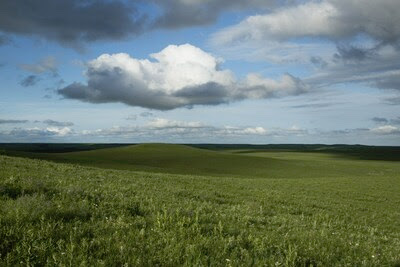Clean energy company Orsted is launching a biodiversity initiative near its Sunflower Wind Farm in Marion County, Kan. It is donating more than $2 million to The Conservation Fund and The Nature Conservancy (TNC) to support voluntary land conservation and restoration on up to 3,000 acres of tallgrass prairie habitat within the Flint Hills. The 200 MW Sunflower Wind Farm will be operational this fall.
Orsted worked with TNC to assess potential biodiversity impacts of Sunflower Wind Farm, identify conservation strategies and build an implementation program to achieve its net-positive biodiversity ambition. After consultation with TNC and The Conservation Fund, Orsted committed to a combination of habitat protection and restoration work in the Flint Hills grassland.
Working with local partners and willing landowners, The Conservation Fund will use Orsted funds to develop and implement customized conservation agreements which preserve high-quality prairie, protect biodiversity and ensure a viable path forward for ranchers. This will provide permanent protection for the tallgrass prairie while maintaining private ownership of working lands.
“Building new renewable energy infrastructure is vital for meeting our climate challenges,” says Larry Selzer, president and CEO of The Conservation Fund. “But at the scale required, it’s essential to prioritize land conservation and restoration.
“We’re excited to be working with Orsted to protect vital tallgrass prairie land that supports both the region’s rich biodiversity and robust ranching economy while offering the green energy industry a collaborative model for mitigating its impact on the environment.”
The Flint Hills region consists of 4.5 million acres of tallgrass prairie across eastern Kansas and Oklahoma, representing two-thirds of all remaining tallgrass prairie. It provides important habitat for greater prairie-chicken, upland sandpiper, Henslow’s sparrow and many other grassland birds. The landscape also supports diverse wildlife, including America’s eastern-most population of pronghorn. The tallgrass prairie in the Flint Hills owes much of its persistence to its ranching heritage.
In addition to conserving tallgrass prairie, Orsted is working with TNC to support wildlife and restore native plant communities via stewardship efforts on properties protected with conservation easements in the Flint Hills.
Orsted’s work with The Nature Conservancy in Kansas will support restoration activities on the ground such as prescribed burns, invasive species removal, grazing management, wildlife support and scientific assessments to ensure the tallgrass prairie remains in an ecologically healthy state for the benefit of Kansans’ environment and economy.
Photo by Ryan Donnell (courtesy of The Nature Conservancy)




